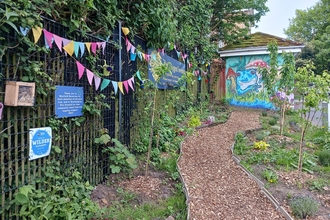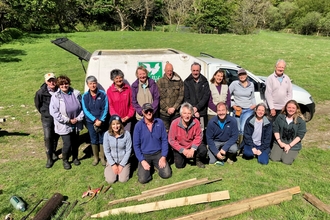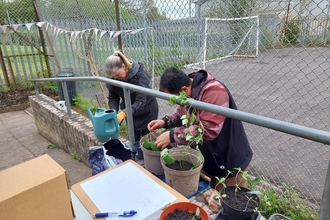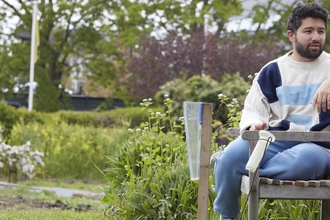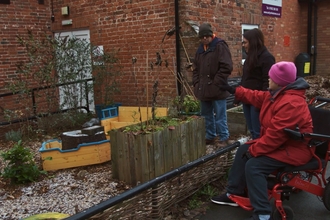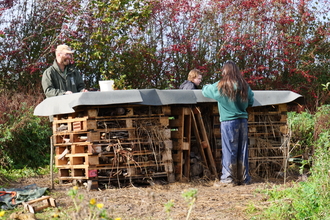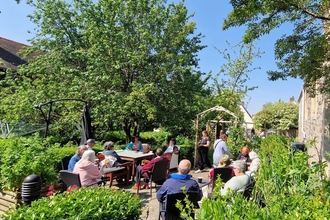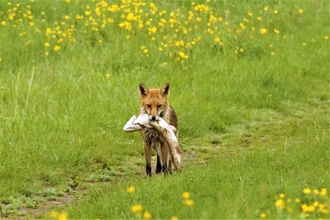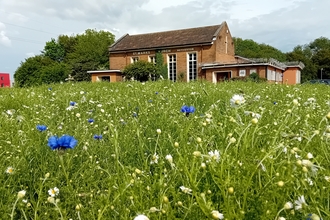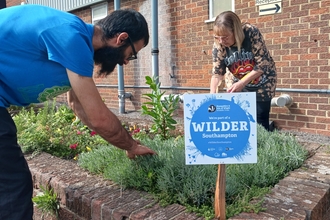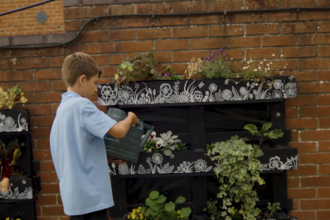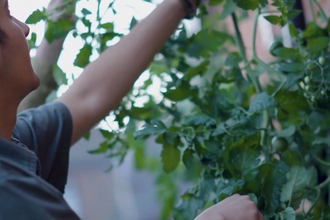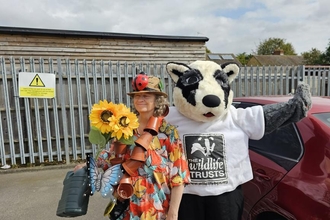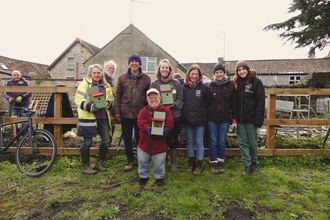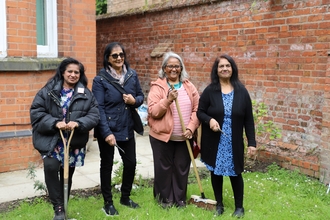Connecting with people and nature at Washington Mind Gardening Group
I'm outdoors connecting with nature and connecting with other people. That's why I started initially, and then like-minded people started to come in. You make great friendships in the garden.
A small gardening group is working with Durham Wildlife Trust to build a nature-friendly community garden. The group is connected to the local mental health charity, Washington Mind and is led by one of its service users, Ruth.
Ruth had the ambition to expand the gardening group to include members of the wider community while also making better use of their space to grow fruit and vegetables that could be taken home and sold for fundraising.
“I started the gardening group initially for my mental health,” said Ruth. “I've been here as a service user and volunteer for 11 years now. Getting my hands in the soil was just great for me.
“I'm outdoors connecting with nature and connecting with other people. That's why I started initially, and then like-minded people started to come in. You make great friendships in the garden.”
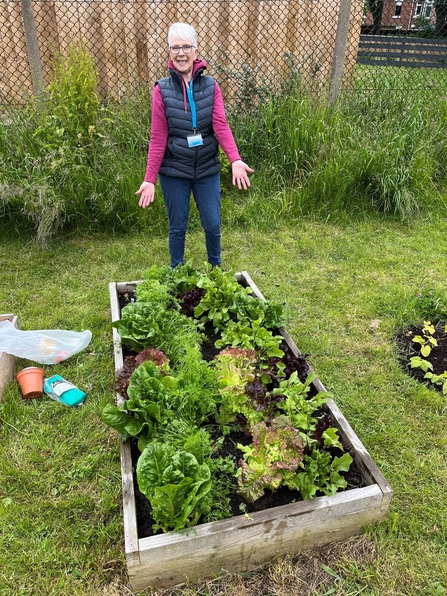
Photo credit: Durham Wildlife Trust
Bringing in Support
The group was full of passion but lacked the reach and resources to grow. All they needed was a helping hand. Washington Mind connected the group with Durham Wildlife Trust’s Nextdoor Nature Officer, Tom Parkin, who supported them in applying to the National Garden Scheme.
Ruth met with Tom weekly, building her skills in collecting evidence, using spreadsheets and gathering stories to support the bid.
The hard work paid off. In April 2023, the group was awarded £5,000 from the National Garden Scheme. It allowed them to buy the plants, tools and equipment they needed to transform the space and achieve their vision.
When I started out, there were only three of us,” Ruth said. “We didn't really have very much and then Tom came along and helped us get funding and taught us about how to bring wildlife into the area. It's been fabulous; we've learned so much.
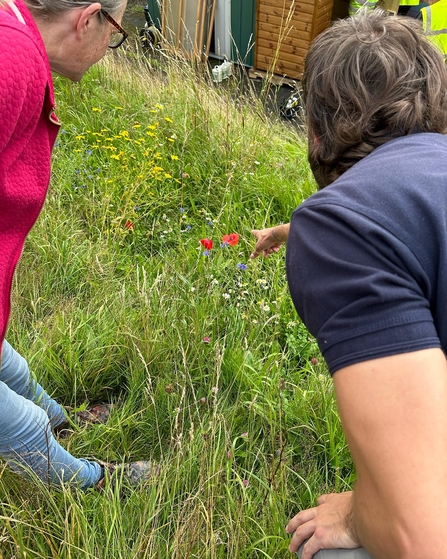
Wildflowers begin to flower at the Washington Mind garden. Photo copyright / Tom Parkin Washington Mind 2024.
Getting to Work
Since then, the project has taken off. The rundown raised beds have been cleared and filled with wildflowers, fruit trees and vegetables. Other sections of the space have been declared no-mow zones to allow a range of insects and larvae to make use of the nettle patches.
When ready to harvest, the produce is taken home by volunteers and used in the Washington Mind Café. Even the nettles don’t go to waste. When Spring comes around, the young leaves are picked and made into a hearty nettle soup and delicious tea.
“A lot of the members here are very keen gardeners so it's all very peer-led and we all learn from each other, which is just fabulous,” said Sue, a staff member at Washington Mind and regular participant in the garden. “We're growing the produce and we're eating it, which is fantastic.”
Photo credit: Durham Wildlife Trust
Growing the Project
As the garden has grown, so too has the support. The community group has expanded with new members joining from the local community and businesses offering their support. A local resident has even donated trees that she no longer had space for.
Jim, a regular volunteer, said he started attending the group to learn more about gardening. “I've got a large garden at home, and I do enjoy it but I’ve never really known what I've been doing for most of the time. It's just potluck. I'm enjoying everything that we're doing here; the landscaping aspects and even shovelling the manure today.”
Vicky, another volunteer, originally came to the group for the social connection but since then has enjoyed learning about nature-friendly gardening techniques.
“My initial reason for joining was because I hadn't worked for a while and I feel like I've been out of connection with people. I wanted to see that I was going to be all right around people.
“I loved gardening, but I think my approach used to be neat paths and neat everything, so learning about all the wild stuff has been great.”
Doug has been part of the gardening group for the past year and is proud to see how the space has grown. For him, one of the most rewarding parts of the weekly sessions is the impact it has on people visiting and contributing to the garden.
“It's about putting that little bit of effort into it and seeing other people gain things from what you've done,” Doug said.
“All the people that come see the place and see it grow. They want to join in. It's nice to see them when they go away buzzing, having actually built something.”
The Impact
The project is already having an impact, not least on Ruth’s confidence as a group leader, guiding the volunteers on tasks during weekly meetings.
Her commitment has enabled the group to grow and helped support those with additional needs. One member said they are "often stuck doing nothing but watching TV in the house, which is why this group and project are supporting [me] so much".
As Ruth communicates via lip-reading, many more people are becoming accustomed to adapting to her ways of communication, including learning some sign language.
Not only has the group transformed the space into a thriving garden, but they have also built lasting friendships along the way.
“It’s consistent,” Tom said. “There is a minimum of ten people here every week and it’s lovely to see this friendship group coming week on week knowing that everyone is going to be there. It’s a great community.”
Ruth added: “I always say people come here like tight little buds and they open up into beautiful flowers.”

Katrina Martin/2020VISION
Have you been part of a community garden?
If you want to tell us your story, we'd love to hear from you and share your experience on the Community Hub.

